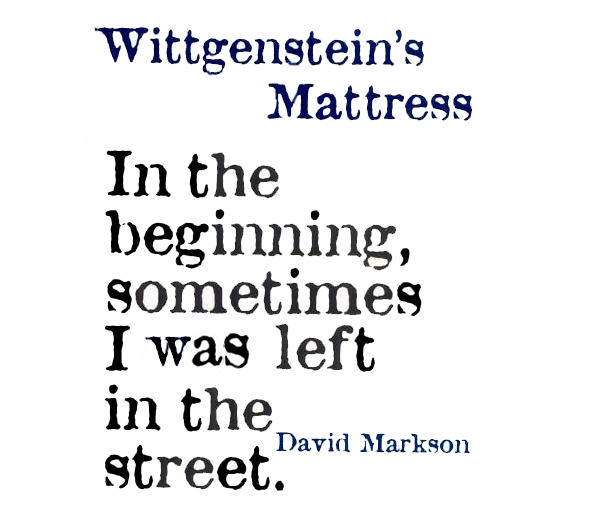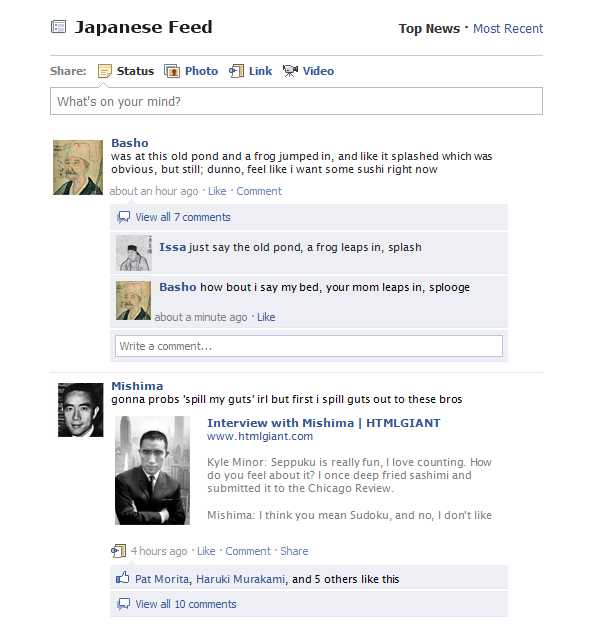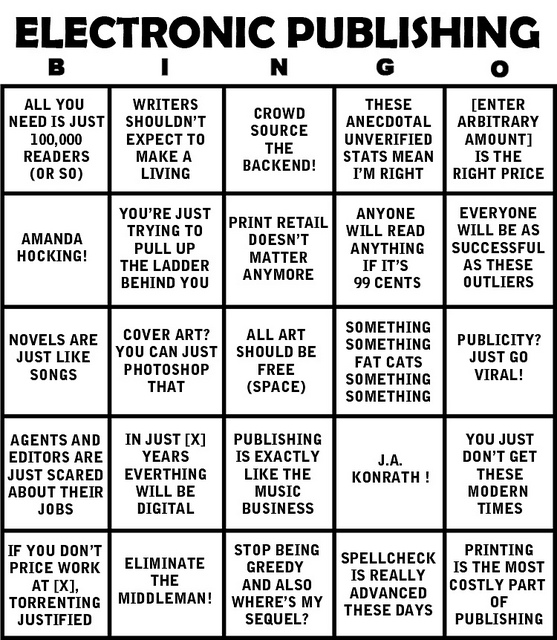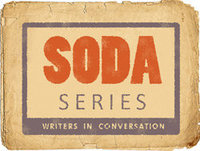Irresponsible Book Reviews
[The following book reviews are of books which have not been read, their commentary based solely off of the cover art, cultural projection (i.e. other book reviews, hearsay, author shtick, just “that feeling”), and the book’s title.]
Mao II
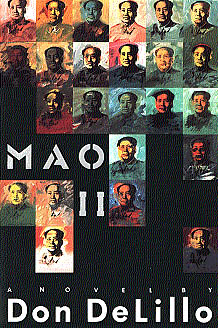
With the success of Mao (now known as “Mao I”), DeLillo just had to milk Mao II, which like most sequels (e.g. Karate Kid II, The Hangover II) is basically the exact same story taking place in Asia — which brings us to DeLillo’s story of a schizophrenic 20 lbs. overweight Chinese communist who thinks he’s a Warholian version of himself. The narrator wanders around all day self-obsessed by lyrical thoughts with vague allegorical tendencies; that and he likes wearing girl’s underwear. If this sounds like Murakami, you’re in the wrong country. Asian people may all look the same, but the street signs differ. DeLillo’s captivating portrait of the fragmented individual is coaxed by his succulent, yet restrained prose. There is a difference between non-American and un-American, and while our conservative folk may accuse him of the latter for his unflinching accounts of post-America, his expanded look into the universal human, in their commonality, makes complete humans of us all. Awesome Dim Sum scene in Chapter 5, just saying.
NYC: cool thing at the PL this Tuesday
Periodically Speaking hosts SUPERMACHINE and 6X6 (UGLY DUCKLING PRESSE) magazines—

Ben Fama and Matvei Yankelevich in conversation with
(and readings by):
Macgregor Card
Corina Copp
Dorothea Lasky
Founders of influential literary mags 6X6, SUPERMACHINE, and the former GERM, with writers they’ve published over the years, discuss the past, present and future of literary publishing, after brief readings.
Tuesday, April 12 · 6:00pm – 7:30pm
DeWitt Wallace Periodical Room, The New York Public Library
Stephen A. Schwarzman Building @ 5th Ave & 42nd Street
New York, NY
(FACEBOOK)
The Poetical Taxon: A Questionnaire

My friend Joseph P. Wood wrote an interesting article over at Open Letters Monthly titled, “Taxonomy and Grace.” I think his basic thesis is encapsulated in these lines:
“While creative writing in American literature has always had camps, movements (and the prerequisite back-biting and bickering), I believe our current poetic climate is so conflicted and contentious that we have done away with talking about poems on their own organic terms. Let it be clear: I am not arguing for a return to New Criticism nor do I believe in the overtly easy-blame game of it’s the fault of those fucking universities. We live in the 21st century. What’s the point of asking to return to “the good old days” when those days would have excluded the likes of me — a working class, oddly educated, and peculiarly read writer with gaping holes in my canonical knowledge? I’m suggesting that while it is important to attend to our own academic reputations and political and aesthetic convictions, it is more important that we honor the imagination by not solely treating the poem against a singular interpretive mechanism.”
It might initially seem as though Joseph is arguing against the artist pigeonholing herself, right, by ascribing to one philosophical or theoretical stance, and this would be true, but I think he’s also genuinely concerned with the way we read and discuss poetry, the way we disseminate poetry. Has poetry become such an in-club that we can’t love a poem without ascribing it to a school or a movement? Do we have to know a shit-ton about Wittgenstein in order to speak intelligently about a poem? And as for the artist, is joining the club actually the job, or the business, of a poet (insert artist, writer, whatever besides critic)? Shouldn’t we simply write our way into the world? Are we in an age that forces us to straddle the fence between idea-schools and self-expression? What about the movements that aggregate what their members believe and create manifestos? I mean, where’s threshold beyond which the artist is in danger of losing her essential selfhood?
Read the article. Take issue. Praise its inherent belief in beauty and grace.
“The heart that thinks, the blood around the heart called thought. How does the mind think? It heaves.” Dan Beachy-Quick is a beautiful thought skater at Joshua Marie Wilkinson’s new poetics journal Evening Will Come. April isn’t just gags and snow; it’s also Quick and Cedar Sigo and Julie Carr. Do it the reading time, sexy loners, do it and hear your tick.
How Like Foreign Objects by Alexis Orgera
Congratulations to HTMLGIANT contributor Alexis Orgera, whose How Like Foreign Objects was just released by H_NGM_N BKS:
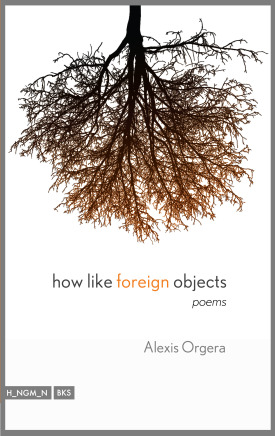
Dean Young had this to say about Orgera’s poems:
Alexis Orgera’s poems perpetually, vitally involve the reconceiving and reenacting of the means of intimacy even as they say again and again, I can no longer be myself. These are love poems between strangers who may for a moment celebrate and endure recognition; their voice is arch, angelic and at odds with itself, mercurial in its metaphoric riches, captivating in improvisational zeal, beautiful, and impossible not to love.
If you’d like to purchase the book, you can do so from H_NGM_N for $14.95. Click on the donate/PayPal button once you get to the HLFO page.
Hot, Young Poets!
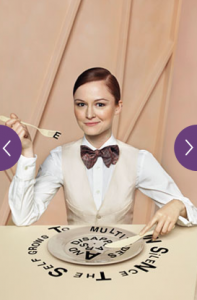 I find it sometimes necessary, when recommending a poet’s work to a non-poetry reader to say, “I don’t read poetry, but…” and then plug whomever it may be. This is a half-true statement. I don’t read much poetry. I read a little and the little that I read (Berryman, Lasky, Flynn, Nelson) I absolutely love. But poetry, as a whole, seems to exist for poets. It’s something that poets read either in the hopes of being better poets or because they have a nice time reading it. I don’t know anyone who reads poetry who doesn’t also write it. True, there are exceptions. A lot of fiction and non-fiction writers read a little poetry (like myself) but for the most part, poetry is consumed by poets.
I find it sometimes necessary, when recommending a poet’s work to a non-poetry reader to say, “I don’t read poetry, but…” and then plug whomever it may be. This is a half-true statement. I don’t read much poetry. I read a little and the little that I read (Berryman, Lasky, Flynn, Nelson) I absolutely love. But poetry, as a whole, seems to exist for poets. It’s something that poets read either in the hopes of being better poets or because they have a nice time reading it. I don’t know anyone who reads poetry who doesn’t also write it. True, there are exceptions. A lot of fiction and non-fiction writers read a little poetry (like myself) but for the most part, poetry is consumed by poets.
Which leads me to wonder: Do any poets read Oprah Magazine? And do any poets wear very simple, straightforward $341 shirts? Does this seem like an irrelevant question? And how could it not?
Oprah Magazine just published a fashion shoot in which young female poets are dressed up in very nice clothes. To make it obvious that they were poets, their words were scattered artfully around the image. Supposedly, this is part of Oprah’s “National Poetry Month” Issue, the Oprah empire’s attempt to get your mom to read some poetry, which I feel is a worthy, albeit fraught, endeavor. If every non-poetry reader (or non-poet) found at least one poet whose voice they liked, and if we all bought a book by that poet, I feel the effect could be tremendously positive. But is that what is really going on here?
Here we see full-color spreads of the young, female poets, their words lying disjointed around them. Some of these poets have not yet even published a collection, or if they do, they’re not mentioned in the little blurbs accompanying the shots. One is Anna Moschovakis, an editor at Ugly Duckling. One is modeling a style deemed ‘Perfectly Punk,’ and looking up at a line of (her own?) poetry that references a studded belt.
And it’s just a little depressing, somehow. Is fashion really a good way to sell poetry, to get the O-reading masses to read some poems? Or is this, as I suspect, just fashion for fashion’s sake, and the poetesses is just the unlikely vehicle for the clothing the needs advertising?
I really do want your mom to read poetry. I want your dad to read it to. But really, I will settle for them reading a book of any kind. Sadly, I think this fashion shoot is going to sell a lot more $995 jackets designed by ‘Haute Hippie.’ (I am depressed that I now know a clothing designer named ‘Haute Hippie’ even exists.)
Electronic Publishing Bingo
This fantastic Bingo Card was created by John Scalzi.
NY: SODA SERIES this SUNDAY
7 PM @ March 20th
Soda Bar in Prospect Heights, Brooklyn.
629 Vanderbilt Ave.
four writers talking to each other, with each other, between each other
featuring our own Mike Young

